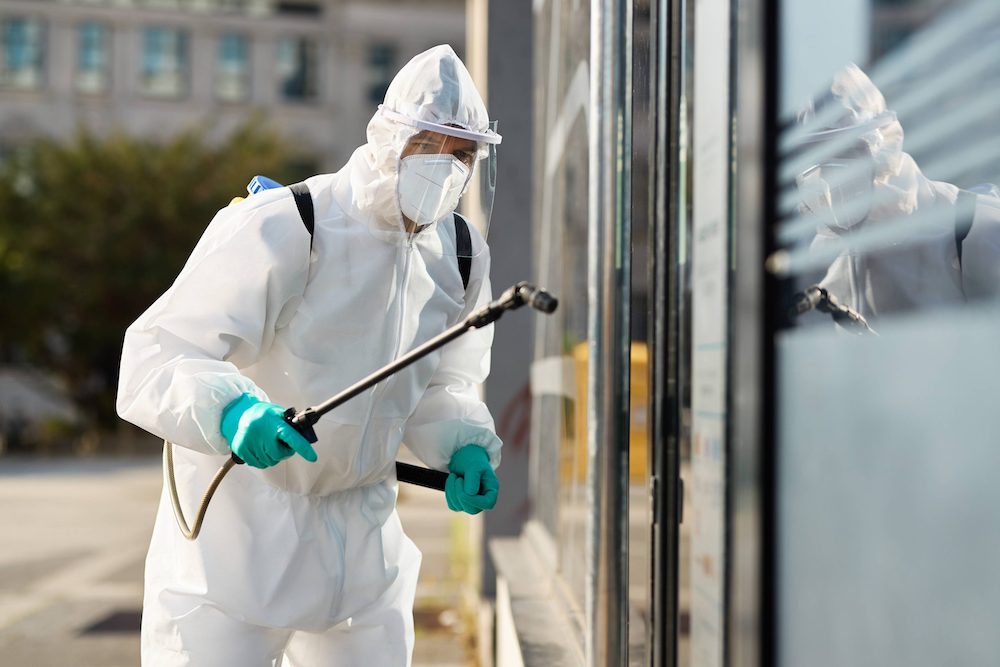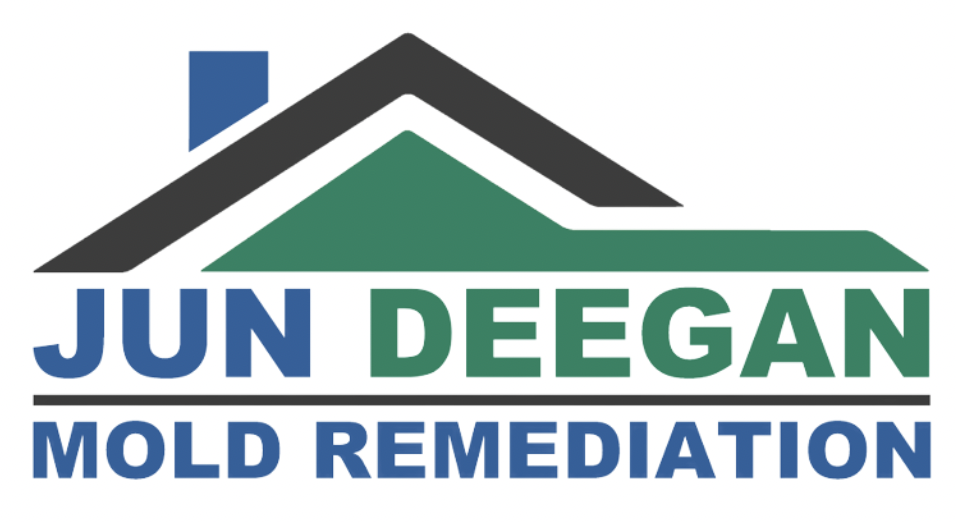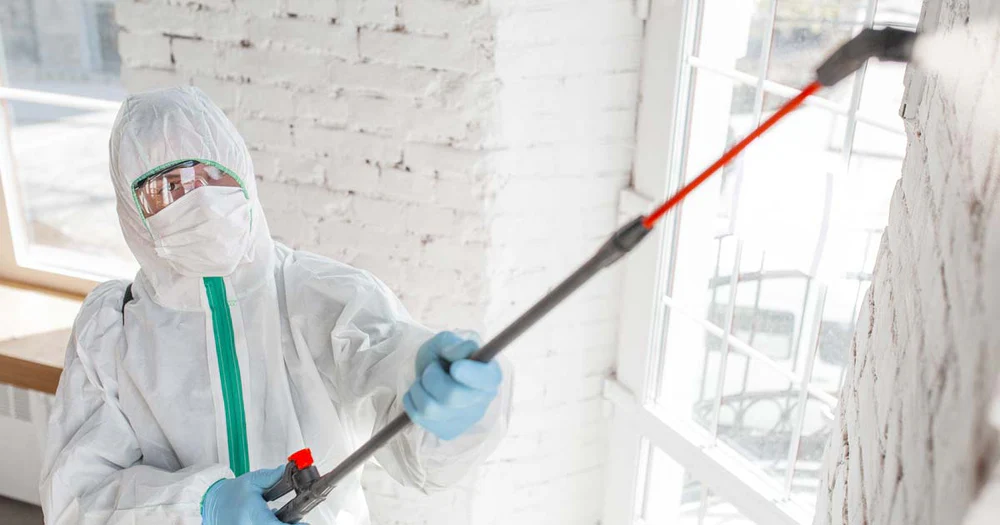Mold is one of the most common yet hazardous problems that can affect commercial properties. In places like Plainfield, NJ where varying weather conditions can increase humidity and moisture levels, the risk of mold growth is heightened. For businesses, mold is not just a cosmetic or superficial issue—it can cause significant damage to both the structure of a building and the health of its occupants. Therefore, commercial mold removal in Plainfield, NJ is critical for protecting employees, customers, and the overall functionality of the business.
Delaying mold remediation may seem like a cost-saving measure in the short term, but it can have severe consequences, both financially and legally, in the long run. This article delves into the importance of timely mold removal in commercial settings, particularly in Plainfield, and why it should be treated as a priority.
Commercial Mold Removal in Plainfield, NJ
What Is Mold and Why Is It a Problem?
Mold is a type of fungus that grows in damp or humid environments. While mold spores are naturally present in the air, they become problematic when they find a moist environment to thrive in, forming colonies on surfaces such as walls, ceilings, and flooring. Mold can grow on a wide range of materials, including wood, drywall, carpet, and insulation.
There are numerous species of mold, some more dangerous than others. One of the most notorious is Stachybotrys chartarum, commonly known as “black mold,” which can release toxins that are harmful when inhaled. Even non-toxic molds can lead to allergic reactions, respiratory issues, and skin irritation, particularly for people with preexisting conditions such as asthma or allergies.
In a commercial environment, where many people may work or pass through daily, the potential for widespread health issues increases exponentially. This makes mold not just an environmental concern but also a public health issue.
 The Risks of Mold in Commercial Properties
The Risks of Mold in Commercial Properties
In Plainfield’s commercial settings, mold can pose a significant threat to various aspects of business operations:
- Health Risks: Prolonged exposure to mold can lead to a host of health issues, including respiratory problems, headaches, skin rashes, and more serious complications like fungal infections. In environments like offices, warehouses, retail spaces, or restaurants, employees, customers, and vendors are all at risk. Furthermore, businesses have a legal responsibility to provide a safe and healthy environment for employees and customers, and mold growth could lead to liability issues if someone becomes ill as a result of exposure.
- Property Damage: Mold doesn’t just stay on the surface. Over time, it can weaken building materials like wood, drywall, and even concrete. Left unchecked, mold can cause severe structural damage to a property. Repairing mold damage can be significantly more expensive than addressing the issue early on. This is especially true in commercial settings where the property may be larger and more complex in its construction.
- Negative Impact on Business Operations: Mold remediation often requires closing down part or all of a building to allow for safe removal. This means lost revenue for businesses, particularly in industries like retail, restaurants, or hospitality. Employees may need to work from home or another location, and customers might avoid a business that appears to have environmental health concerns. The interruption to daily operations can be costly, not only in terms of revenue but also in damage to a business’s reputation.
- Decreased Property Value: Mold problems can drastically lower the value of a commercial property. Whether you’re looking to sell the property, refinance, or attract new tenants, the presence of mold can deter potential buyers or renters. In many cases, prospective buyers may request a discount on the purchase price or refuse to buy altogether if mold has been detected. Remediating the mold after it has already caused significant damage can be expensive and time-consuming, further decreasing the return on investment for property owners.
Why Mold Removal Shouldn’t Be Delayed
Given the risks associated with mold, it’s clear that prompt removal is essential. There are several reasons why mold removal in Plainfield commercial properties should never be put off:
- Mold Spreads Quickly: Mold spores are microscopic and can travel through air ducts, on people’s clothes, and in ventilation systems. Once mold takes hold in one part of a building, it can quickly spread to other areas. The longer the mold is left untreated, the more widespread and costly the removal process becomes. Mold can also get into HVAC systems, further spreading spores throughout the building.
- Health Risks Escalate: The longer mold is allowed to grow, the more it can impact the health of those who are exposed to it. Mold produces allergens and irritants that can exacerbate preexisting health issues, particularly respiratory problems. Over time, the severity of the health risks increases, which can lead to lawsuits, worker’s compensation claims, or even regulatory fines.
- Cost of Remediation Increases: Early mold detection and removal is far less expensive than remediating mold that has spread throughout a building. The cost of mold removal rises significantly if the mold has penetrated structural components like insulation, drywall, or flooring. By addressing the problem as soon as it is discovered, property owners can save thousands in potential repair costs.
- Legal and Regulatory Issues: Many local and state regulations require commercial properties to meet certain health and safety standards. Mold infestations could violate health codes, leading to fines or forced closure by local authorities. Failure to address mold issues promptly can also result in lawsuits from employees, tenants, or customers who may claim that their health was impacted by the presence of mold.
The Benefits of Professional Mold Removal
Hiring a professional mold remediation service in Plainfield is the best way to ensure that the mold is thoroughly and safely removed. These experts use specialized equipment to detect hidden mold, safely remove it, and prevent it from returning. They can also advise property owners on how to prevent future mold growth through proper ventilation, moisture control, and maintenance practices.
Professional mold remediation services are trained to handle hazardous materials and know how to comply with local regulations. They can also provide documentation that a mold problem has been properly addressed, which is critical for insurance claims or when selling or leasing a property.
In commercial settings, mold is not something that can be ignored or postponed. It poses serious risks to health, property, and business operations. Given the rapid growth and potential dangers of mold, it’s essential for business owners and property managers in Plainfield to prioritize professional mold removal at the first sign of an issue. Doing so will safeguard the health of employees and customers, protect the property from damage, and prevent costly legal or financial consequences down the road.
Looking for an Experienced Plainfield Commercial Mold Removal Company?
If mold recurrence is a concern, consulting with NJ mold experts is a wise decision. With Jun Deegan Mold Remediation, you’re not just getting remediation; you’re investing in a long-term mold-free environment. Our proficient team addresses not only the visible mold but delves deeper to rectify moisture sources, ensuring mold doesn’t find its way back to your premises. Connect with Jun Deegan, where eradication meets prevention, ensuring you a safe, mold-free dwelling. Your peace of mind is just a call away.
Other Posts:
Somerset Mold Remediation Services
Berkeley Heights Mold Inspection

